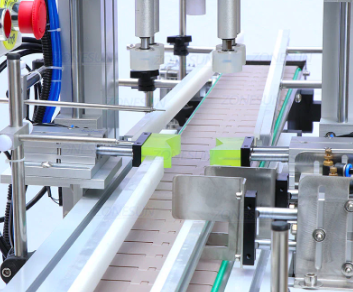Table of Contents
ToggleIndustrial packaging machines are essential for modern manufacturing and distribution processes, ensuring efficiency, precision, and product integrity. This article explores the types of industrial packaging machines, their working principles, and key considerations for selecting the right machine to meet your specific needs.
Types of Industrial Packaging Machines
Industrial packaging machines come in various types, each designed for specific applications. Understanding these types helps businesses choose the best option for their production line.
 1. Filling Machines
1. Filling Machines
Filling machines are widely used in food, beverage, chemical, and other industries. These machines handle liquid, powder, or granular products, ensuring accurate measurements and minimal waste. Advanced filling machines can achieve precision levels within 0.1% of the target weight, making them ideal for high-value products.
2. Sealing Machines
Sealing machines secure the packaging to protect products from contamination and damage. They use heat, adhesives, or ultrasonic technology to create airtight seals. For example, automatic sealing machines can process up to 120 packages per minute, significantly enhancing production speed.
3. Labeling Machines
Labeling machines apply labels accurately and quickly, providing essential product information such as batch numbers, expiration dates, and branding. Modern industrial packaging machines in this category can handle over 300 labels per minute, ensuring compliance with industry standards.
4. Wrapping Machines
Wrapping machines, such as shrink-wrap and stretch-wrap machines, are commonly used for bundling products together or securing them for transport. These machines improve pallet stability and reduce damage during shipping.
5. Cartoning Machines
Cartoning machines fold cartons and fill them with products, offering a complete packaging solution. They are popular in industries like pharmaceuticals and personal care, with some machines capable of producing over 150 cartons per minute.
How Industrial Packaging Machines Work
Industrial packaging machines operate using automation and precision engineering. Below is a breakdown of their general working principles:
1. Material Handling
Raw materials or semi-finished products are transported to the machine via conveyors or feeders. Sensors ensure proper alignment and positioning.
2. Packaging Formation
The machine forms the packaging material, such as bags, pouches, or boxes, based on the design specifications.
3. Product Insertion
Filling systems precisely measure and insert the product into the packaging. Advanced machines utilize robotic arms for delicate or irregularly shaped items.
4. Sealing and Labeling
Sealing mechanisms close the packaging to preserve product integrity, while integrated labeling systems add required information.
5. Quality Control
Inspection systems check for defects, such as leaks or improper seals, ensuring that only high-quality packages proceed to the next stage.
How to Choose the Right Industrial Packaging Machine
Selecting the right industrial packaging machines depends on several factors:
1. Production Volume
High-volume operations require machines with faster processing speeds. For example, a factory producing 10,000 units daily would benefit from machines capable of handling at least 200 units per minute.
2. Product Type
Different machines suit specific products. For instance, liquid products require filling machines with no-drip technology, while fragile items might need cushioning during packaging.
3. Budget and ROI
Evaluate the cost of the machine against its long-term benefits, such as reduced labor costs and improved efficiency.
4. Customization
Look for machines with adjustable settings to accommodate changes in product lines or packaging materials.
5. Maintenance and Support
Choose reliable manufacturers that provide robust after-sales support and easy-to-maintain equipment.
Conclusion
Industrial packaging machines play a pivotal role in modern manufacturing, offering speed, accuracy, and versatility. By understanding the different types of machines, their working principles, and the criteria for selection, businesses can optimize their packaging processes, reduce waste, and improve productivity. Investing in the right industrial packaging machines is not just a necessity but a strategic decision for long-term success.
0
